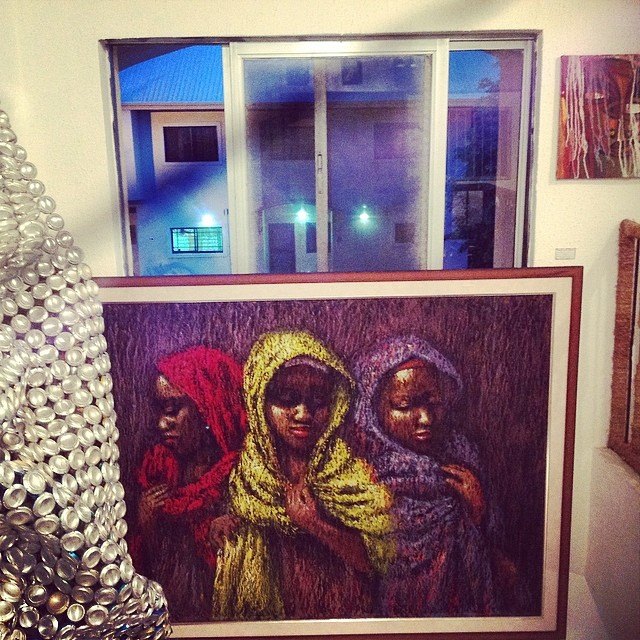To draw people’s consciousness to the challenges that women and girls face in this country. This Tersoo Gundu stated was the goal of the ‘Future of the Nigerian Girl’, a breathtaking exhibition of sculptures paintings and pictures of the female child.
Tersoo’s studio in the city of Abuja was packed with writers, artists, photographers and journalists. Most of those present would later be at the #BringBackOurGirls sit-out somewhere in the heart of the city. They discussed the plight of the mother’s of Chibok and the horrors the kidnapped girls would undergo.
I asked the professional photographer why the plight of the Nigerian women gave him such great concern to organize an exhibition. He seemed to reflect on it for a while, smiled and said to me:
I sat waiting for the arrival my niece Bresha at the Asokoro hospital, three years ago. When my sister was finally delivered of the baby, I looked at them both, they looked beautiful. I thought of all my sister had gone through to bring Bresha to the world and right there, I developed greater respect for women and mother’s.
Women have been held in such low esteem in our society, and the problem isn’t just the machosistic culture or the gross inequality, more than anything the greatest challenge to the women folk in our sociey has to do with the orientation given to the coming generation by the existing ones. That idea that a girl has to follow certain templates to be regarded as a woman in the society.
Tersoo had some valid points, i had to give him that. I mean it was obvious, men really had little to do with it. The role of the Nigerian woman, the ‘wife template’ was being passed down mostly by the women themselves. A definition which grinds the usefulness of the woman to her ability to cook good meals, tolerate her partner, raise the children and respect the in-laws. One which neglects the crucial role of the Nigerian woman in nation building, politics, governance and development.
Social constructions have traditionally dictated that women yield to someone else’s control. Females often receive messages that they are more feminine, acceptable, and lovable when they have little or no institutional power.
Historically, women have been led to feel that they can integrate and use all their attributes if they use them for others. They have developed the sense that their lives should be guided by the constant need to attune themselves to the wishes, desires and need of others.
Through compelling images Gundu re-ignites one of the most fundamental psychological battles of the role of women in the society pointing out how women have been burdened with certain disadvantages that have positioned them unfavorably in both their personal and professional lives.
The image of a woman has for too long negatively implied that she must be acceptable, docile, passive, submissive, and ‘less than’ in many ways. Sadly, even some women have thought of themselves as lesser human beings. In Nigeria, like most underdeveloped countries, pre-existing social configurations have now created an anticipated future of the Nigerian girl child.
The exhibition which lasted for almost a week recorded massive turnout by locals as well as foreigners. This, like many other indicators show that the social structures required by the Nigerian girl child has to go beyond the considerations of education, healthcare and all other apparatus used to pamper women. The country has to grant them their rightful place in the society & to do that, most of the work will have to he done by the women folk. If all the women in Nigeria decide to demonstrate or vote for a female candidate, the outcome is undeniable.

Leave a comment